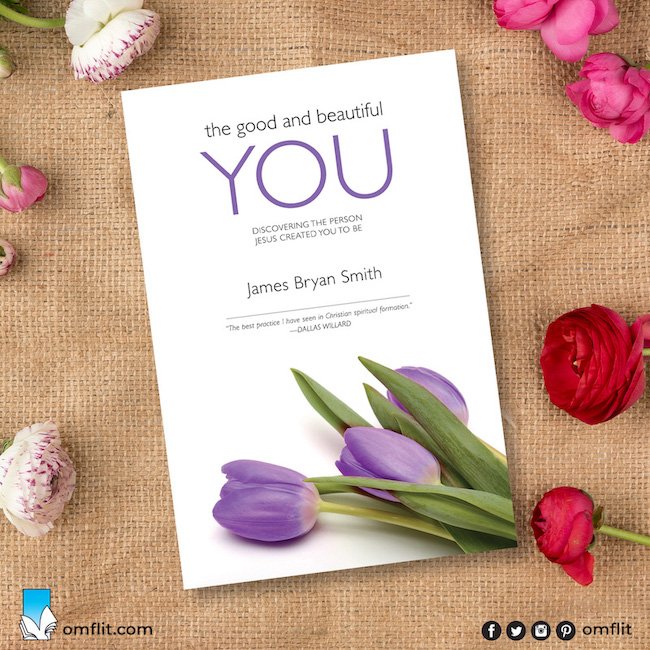DAY 18 CHRISTMAS GOOD NEWS: BRINGING PEACE TO OUR SOULS
Dolce far niente—“the sweetness of doing nothing.”
One of the most powerful soul-training exercises I have ever done is a practice called holy leisure. In simple terms, holy leisure is “doing nothing, for God’s sake.” It is important to get the emphasis on the right clause: we do nothing, but we do it for God. Richard Foster writes about this in his classic book, Celebration of Discipline:
"The church Fathers often spoke of Otium Sanctum, “holy leisure.”
It refers to a sense of balance in the life, an ability to be at
peace through the activities of the day, an ability to rest and
take time to enjoy beauty, an ability to pace ourselves. With our
tendency to define people in terms of what they produce, we
would do well to cultivate “holy leisure” with a determination
that is ruthless to our datebooks."
I can think of no practice that is more needed for our frantic, fast-paced, over-scheduled world than holy leisure, for the reasons Richard describes.
The central tenet of this book is that we are created by God with everything we need, everything our souls long for, and that we do not have to strive to meet these needs. God fulfills these needs as gifts to us. But everything within us wants to control, to push, to earn, and to achieve. Holy leisure puts this desire to death like nothing else I have done. In a sense, it is the simplest of all practices: just . . . do . . .nothing.
In another sense, it is the most challenging practice we can engage in. This is due in part to the fact that our world calls this “killing time,” which makes us feel false guilt when we do so. Nothing could be further from the truth. Holy leisure is “investing time” in resting in God.
Why was it so difficult? Because doing nothing is not something we ever do intentionally. To be sure, we all waste time now and again. But to set aside time to do it—that is foreign to us. It just feels strange. And it stirs up something within us that wants to do, to accomplish, to make the most of our . . . time.
The reason for beginning with this practice is to help us embed these narratives: life is a gift; we are a gift; we did not create ourselves or earn God’s love and forgiveness; we did not merit new life in Christ; and our future life in glory is not something we earn. We did nothing to receive these gifts. Practicing holy leisure is a way to live into this reality. To embrace simply being instead of doing is difficult for most of us. This practice, if we can endure it, will bring peace into our souls.
So how do you practice holy leisure?
• Set aside a set amount of time in your schedule.
• Start with five or ten minutes doing nothing. You may find that you can spend longer than five to ten, and if so you may want to try thirty or forty-five minutes—though this will be difficult for many, especially the first time if you have never done it.
• Find a comfortable place to sit still for this time period.
• Do not do anything that accomplishes something.
• Just be. Do not do.
The point of this practice is to become comfortable doing nothing, which puts to death our need to establish our worth through what we accomplish. If we make this practice a part of the rhythm of our lives, we will discover the joy of unhurried living, as well as the blessing of knowing that all of life is grace.
In my experience, many people will find this very difficult, and for some, even unpleasant. Many people have even said to me, “When I tried holy leisure it was a disaster—an epic fail!” If that is the case for you, do not be discouraged. The rule of thumb for all soul-training exercises is this: do as you can, not as you can’t. Simply do this exercise for as long as you are able, and be at peace. Few people do it well the first time, so give yourself a lot of grace. Focus on being and not doing for as long as you are able, and count on it being easier the more you practice it.
This is an excerpt from The Good and Beautiful You: Discovering the Person Jesus Created You to Be by James Bryan Smith, available at OMF Lit Bookshops, shop.omflit.com, Shopee, and Lazada for P325.
The Christian faith is not only about belief and practices, it is also about the kind of people that we become. Yet some of the biggest barriers to our transformation come from our toxic self-narratives. These narratives shape the way we see ourselves and the way we interact in the world. God designed us with a deep longing in our souls to be wanted, loved, alive, and connected to God. Healing our souls requires more than knowing what God thinks about us. Our healing comes not through reason alone, but through revelation.
“The best practice I have seen in Christian spiritual formation” was Dallas Willard's endorsement of the Good and Beautiful series a decade ago. Now this fourth book in the series, The Good and Beautiful You, addresses the self-narratives that hinder spiritual growth and the desires of the soul that only God can satisfy. James Bryan Smith reminds us how Scripture reveals the beauty and goodness of our own souls and how we long for healing that only God can provide. Complete with spiritual practices that help us live into that reality, The Good and Beautiful You will serve as a welcome companion on your journey to discover who you truly are in Christ.


